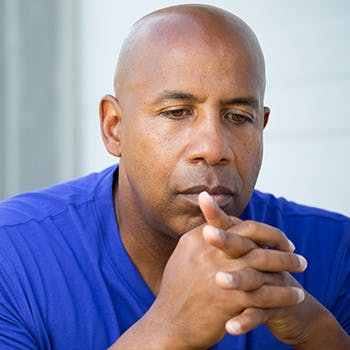How to Tell If You Have Hemorrhoids

You may shudder at the word hemorrhoid for many reasons. Perhaps you have experienced hemorrhoids first-hand, or have heard about them from someone who has experienced them. No matter the circumstance, you may (understandably) not like to talk about it. However, hemorrhoids are quite common in middle and later life.1 In fact, most people by age 50 have experienced one or more of the symptoms of hemorrhoids, which include rectal pain, itching, and bleeding.2
If you’ve been wondering how to tell if you have hemorrhoids, here we explain more about the common causes and symptoms one can experience if they do have hemorrhoids. Read on to learn more about hemorrhoids and what to do if you have them.
What are hemorrhoids?
Though hemorrhoids are rarely dangerous, they can cause a painful intrusion that can impact your day-to-day.2 Hemorrhoids, which are also known as piles, are varicose veins of the rectum or anus1,2 and are caused when these veins become swollen and distended2. There are three different types of hemorrhoids to be aware of:
- Internal hemorrhoids – These are found inside the rectum and tend to be painless, though bleeding can be caused.1
- External hemorrhoids – These types of hemorrhoids are small hemorrhages that can be found under the skin around the anus, and may feel like hard lumps.1 A blood clot may form inside an external hemorrhoid, which can cause an onset of severe pain. This clot usually does dissolve over time, but can leave a skin tag that may itch or become irritated.2
- Prolapsed hemorrhoids – These are considered the most severe and painful form of internal and external hemorrhoids, and are caused when the veins of the rectum push out through the anus and hang out of the body.1 Prolapsed hemorrhoids can occur after a bowel movement.1
Common causes of hemorrhoids
Now that you know what hemorrhoids are, it could be useful to know what causes hemorrhoids. The general cause of hemorrhoids is increased pressure on the veins in the pelvis and rectal area. Other causes of hemorrhoids are:
- Straining during bowel movements
- Experiencing long-term constipation or diarrhea
- Spending long periods of time on the toilet
- Being pregnant
- Being older3
People who are between the ages of 45 to 65 are more likely to develop hemorrhoids, as well people who have a family history of hemorrhoids.3
Common symptoms of hemorrhoids
How can you tell if you have hemorrhoids? Though symptoms can vary from person to person, there are some common symptoms you can watch out for:
- Itching
- Bright red blood in your stool, on the toilet paper you use, or in your toilet bowl
- Pain and irritation around your anus
- Swelling or a hard lump around your anus3
Hemorrhoids are often associated with constipation and straining during bowel movements.1 Constipation and straining can interfere with blood flow to and from the rectum area, which can cause it to pool and enlarge the vessels.2 So, if you find yourself consistently experiencing constipation, then you may be likely to develop hemorrhoids.2 This is because straining during a bowel movement increases pressure in the anal canal and pushes the hemorrhoids against the sphincter muscle.2 Hemorrhoids are common for pregnant women due to the fact that when the uterus begins to enlarge during the first three trimesters, the uterus presses on the veins.2
How are hemorrhoids diagnosed?
If you’ve been wondering how to tell if you have hemorrhoids and want an expert’s opinion, a healthcare provider can perform a physical exam.3 During this physical exam, they can check your anus and rectum for any swollen blood vessels.3 Other types of procedures include a colonoscopy, which is a procedure that checks for any abnormalities in the large intestine.3 A colonoscopy allows the healthcare provider to sample the lining of your colon and treat any problems that may be more serious than a hemorrhoid.3
Ways to prevent hemorrhoids
Though it’s not always possible to stop hemorrhoids from happening, you may be able to reduce your risk by doing some of the following:
- Consume a diet that’s filled with plenty of fiber and liquids to ensure your stool is healthy and help prevent constipation3
- Limit the time you spend on the toilet, as this is a common cause of hemorrhoids3
- Talk with a healthcare provider about ways to manage constipation or further medical help if straining becomes an issue3
While hemorrhoids may be difficult to talk about and uncomfortable to experience, it can be helpful to have a better understanding of their causes and symptoms to prepare you in case you get them.



